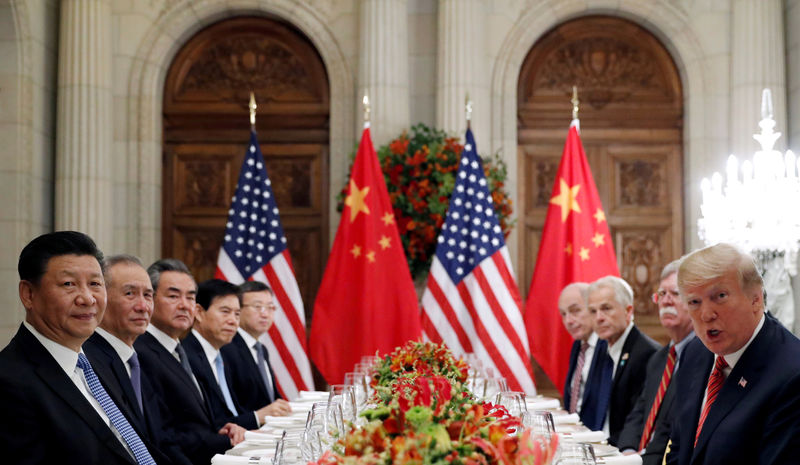(Bloomberg Opinion) -- Global stock markets may continue to gyrate on every dodge and parry in trade talks between the U.S. and China, but the unacknowledged reality is that a deal no longer matters much.
Sure, it would be better to have one than not. Yet the relationship between these two powers has changed so much since negotiations began a year ago that they have become a sideshow in a greater confrontation that no trade pact can resolve.
Especially this one. The agreement under discussion appears to contain a few tasty tidbits that might aid U.S. companies in China. As far as we know, though, major points of contention will not be fully addressed – most of all, Beijing’s market-distorting subsidies for cutting-edge industries. If a deal is reached, the so-called enforcement mechanism looks destined to degenerate into endless rounds of claims and counterclaims. That means repeated threats of tariffs and chronic uncertainty for U.S. business.
Even a more comprehensive pact would remove only a couple of issues from what has become a lengthy list of disputes. There was a perception when the trade spat first erupted that an agreement might reset relations to “normal,” or at least something close to it. That meant letting businesses do business, and compartmentalizing diplomatic or ideological scuffles as far as possible.
Now that seems all but impossible. U.S. Secretary of State Mike Pompeo has been traveling the world warning allies that getting too close to China will harm relations with Washington. Buying telecom equipment from Huawei Technologies Co. would compel the U.S. to curtail intelligence-sharing, Pompeo has said, while participating in Beijing’s Belt and Road infrastructure bonanza was sanctioning “debt traps” and predatory business practices.
Add in fresh curbs on U.S. visas for Chinese scholars and heightened rhetoric over Beijing’s disputed territorial claims in the South China Sea, and the points of conflict now run well beyond tariffs and soybeans.
A trade deal perhaps could reduce tensions if it was a sign of Beijing’s willingness to step back from an increasingly assertive foreign policy. There’s little indication of that. China’s leaders may have stopped mentioning the controversial Made in China 2025 state-led industrial program – a prime target of U.S. ire. But the substance of the plan – upgrading Chinese manufacturing and technology – remains a primary ambition. At the recent Belt and Road conference, President Xi Jinping pledged to make the program more transparent and open. As is often the case, though, he provided no details.
What’s unfolded over a year of trade talks is a new view in Washington that China is the primary strategic threat to U.S. dominance. Now that the geopolitical cat is out of the bag, there’s no way of getting it back in. Even if a trade agreement brings a pause, the smiles and handshakes will probably prove fleeting. With American opinions of China increasingly unfavorable, right and left will vie to outdo each other in China-bashing as the 2020 presidential election approaches.
Meanwhile, the trade dispute’s damage has already been done. For much of the past 30 years, greater economic integration with China was taken for granted in political and business circles. No longer. Uncertainty over their future relationship is prodding U.S. companies to rethink their reliance on China for manufacturing. Chinese companies, meanwhile, aren’t rushing in the other direction. Chinese investment in the U.S. sank 60 percent in 2018, according to the American Enterprise Institute. Recently adopted U.S. rules aimed at blocking Chinese acquisitions of American companies and technology aren’t going away.
While China and the U.S. may not be fully decoupling from one another, further integration may be restrained if relations continue on their current path. Investors need to get beyond their “tariffs off, tariffs on” fixation and digest the medium-term consequences of a disrupted U.S.-China relationship. Trade talks will continue to have their ups and downs. The big picture isn’t changing.
